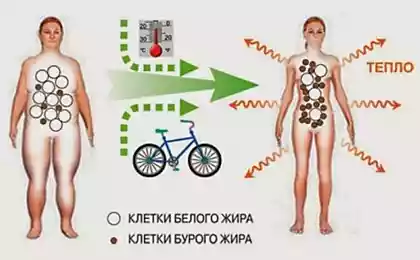184
Food Facts That Will Change Your Menu

Once upon a time, doctors declared fat the enemy of all who lose weight, and freshly squeezed juices their absolute friend. But after several decades of research, the expert community came to quite different conclusions. What? Is it worth revising your menu? Discuss controversial facts and the latest research in the field of nutrition with nutritionists.
We live in a time when our ideas about the world in general and nutrition in particular are changing almost daily: researchers discover previously unknown properties of familiar products, declare dangerous seemingly “harmless” dishes and recommend leaning on those that were placed on the “black list” 50 years ago. So we collected a few controversial facts about nutrition and discussed them with experts.
1. Fat is not dangerous for the figure, but on the contrary, helps to lose weight
Fat is often said by nutrition experts, referring to the division of nutrients into saturated (contained mainly in animal products) and unsaturated (they are rich in nuts and all types of vegetable oil). Universal hatred of the first group in 1961 was “established” by the American physiologist Ansel Keys, who proved that in countries with high fat intake, mortality from cardiovascular diseases is more common. Soon after, nutritionists massively began to call the use of fatty foods as one of the main causes of excess weight.
It took the scientific community almost 50 years to justify the nutrient (and it serves to nourish heart cells and effectively absorb calcium). A big fat point in this matter was put by a study from the University of Cambridge, published in March 2014 and proved that reducing saturated fat in the diet is not an effective way to treat and prevent cardiovascular disease. Justified saturated fat and losing weight, for example, adherents of the LCHF system (one of the varieties of low-carbohydrate diet with high fat content).
Does all this mean that we really need to unconditionally “prescribe” lard, butter and bacon in our diet? Hardly.
Anna Korobkina, a nutritionist at the Center for Personal Dietetics "Palette of Nutrition" comments: "Fats - both saturated and unsaturated - are necessary for our body. Without them, women of reproductive age may develop depression and reduce the production of sex hormones. However, completely switch to a fatty diet is still not worth it: such nutrition plans, although they were used a century ago for therapeutic purposes for patients with tuberculosis, typhoid, diabetes, can irreversibly disrupt the kidneys and increase the risk of intestinal cancer. For residents of some regions, for example, the Far North, such diets may be suitable: with the evolution of centuries, enzyme systems have been formed, adapted to digest exclusively fats. But for residents of the middle strip of Russia, the balance of nutrients is important.”
Anna Karshieva, gastroenterologist at Atlas Medical Center, comments: Saturated fats do not spoil the figure and do not affect cholesterol levels only if their amount in the diet does not exceed 30 g per day. If these indicators are higher, then you need to understand that the caloric content of food increases, and if motor activity remains low, then the weight will invariably increase. This also increases the risk of heart attacks and strokes.”
2. Fractional nutrition does not affect the metabolism.
A few years ago, scientists from the French Institute of Health and Nutrition published a study on this topic. The authors of the scientific work divided the subjects into two groups, one of them ate three times a day, and the other six. The results of the experiment showed that the rate of metabolic processes was the same in both. This allowed them to conclude that the frequency of meals does not affect the metabolic rate. And some researchers also suggest that metabolic processes are affected by the quality of food, for example, protein makes it better carbohydrate.
Anna Korobkina comments: The metabolic rate depends not on the food itself and its quality, but on the developed habit of making our body “work” on its digestion. It means that you need to “feed” it with a certain frequency of 3-4 hours. From the position of weight loss, this is also useful because it helps to control the amount of food: you can eat much more after an 8-hour break.
Anna Karshieva comments: The metabolic rate is primarily affected by the concentration of thyroid hormone, thyroxine, and physical activity during the day. But the quality and frequency of food intake on this process has an indirect effect. The intake of protein food contributes to the rapid assimilation of food and increases the level of energy consumption, however, locally: metabolic processes at the level of the digestive tract will accelerate somewhat, but will not change in the volume of the entire body.
3. Carbohydrates should not be the main source of calories in the diet
According to the classical food pyramid (on it, for example, the Mediterranean diet is based), the main source of calories in the diet should be carbohydrates: grains, vegetables and fruits. However, about 6-7 years ago, the appearance of the pyramid began to change significantly in the direction of increasing the menu of proteins and fats. Add fuel to the fire, American researchers William Davis and David Parlmutter, published a study where they accused grains of stimulating weight gain and nervous system disorders. In sum, this leads to the fact that many modern food systems imply, if not a complete rejection of carbohydrates, then a significant reduction in their menu. However, our experts believe that this is a vain step.
Anna Korobkina comments: “According to the classical pyramid, not all carbohydrates are considered to be the basis of it, but the right grain products containing dietary fiber, ballast substances, and most importantly - vitamins of group B. It is not worth eliminating them from the menu completely - it will be very difficult to type the daily rate of fibers with only vegetables and fruits.”
Anna Karshieva comments: Grain crops are necessary as an important source of energy, including indigestible fiber, necessary for the formation of normal stool, and therefore intestinal drainage. But the protein type of nutrition suggests a tendency to slow down intestinal motility and change its microflora, which leads to the formation of constipation and an increase in the risk of colon cancer.
However, the opinions of nutritionists and researchers – both modern and those who worked in the last century – do agree on something: each person’s body is unique. Therefore, the main criterion for choosing a diet or a specific product is still our own feelings from a particular food. So if, eating semolina porridge for breakfast, you remain slim, and low-fat cottage cheese leads you to delight - do not give up your favorite habits. published
P.S. And remember, just changing our consumption – together we change the world!
Source: www.ecology.md
The plan of the ESA by clearing the orbit of debris moved from the dead point
From which there is night cramps in the legs?























